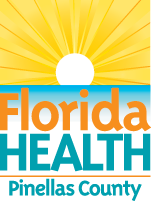It's a New Day in Public Health.
The Florida Department of Health works to protect, promote, and improve the health of all people in Florida through integrated state, county, and community efforts.
DOH-PINELLAS ISSUES MOSQUITO-BORNE ILLNESS ADVISORY
August 21, 2015

DOH-PINELLAS ISSUES MOSQUITO-BORNE ILLNESS ADVISORY
St. Petersburg - The Florida Department of Health in Pinellas County (DOH-Pinellas) has issued a health advisory to emphasize the importance for residents and visitors to protect against mosquito-borne illnesses.
This advisory is being issued due to 19 positive tests for West Nile Virus in sentinel chickens from Pinellas County Mosquito Control coops. As a result, the risk of transmission to humans in the county has increased.
Pinellas County Mosquito Control and DOH-Pinellas continue surveillance and prevention efforts and encourage everyone to take basic precautions to avoid being bitten by mosquitoes that may cause West Nile Virus disease.
A media opportunity is scheduled at 10 AM today, Friday, Aug. 21, at Pinellas County Mosquito Control, 4100 118th Ave. N., Clearwater, with representatives from Mosquito Control and DOH-Pinellas for interviews and B-roll.
To protect yourself from mosquitoes, you should remember to “Drain and Cover”:
DRAIN standing water to stop mosquitoes from multiplying.
- Drain water from garbage cans, house gutters, buckets, pool covers, coolers, toys, flower pots or any other containers where sprinkler or rain water has collected.
- Discard old tires, drums, bottles, cans, pots and pans, broken appliances and other items that aren’t being used.
- Empty and clean birdbaths and pet's water bowls at least once or twice a week.
- Protect boats and vehicles from rain with tarps that don’t accumulate water.
- Maintain swimming pools in good condition and appropriately chlorinated. Empty plastic
swimming pools when not in use.
COVER skin with clothing or repellent.
- Clothing - Wear comfortable shoes, socks and long pants and long-sleeves. This type of protection may be necessary for people who must work in areas where mosquitoes are present.
- Repellent - Apply mosquito repellent to exposed skin and clothing.
- Always use repellents according to the label. Environmental Protection Agency (EPA) registered repellents with 10-30 percent DEET, picaridin, IR3535 and some oil of lemon eucalyptus and para-mentane-diol products provide longer-lasting protection.
- Permethrin repellent can also be applied to clothing (but not skin).
- Use mosquito netting to protect children younger than two months old.
COVER doors and windows with screens.
- Keep mosquitos out of your houses. Repair broken screening on windows, doors, porches, and patios.
Tips on Repellent Use
- Always read label directions carefully for the approved usage before you apply a repellent. Some repellents are not suitable for children.
- Products with concentrations of up to 30 percent DEET are generally recommended. Other US Environmental Protection Agency-approved repellents contain picaridin, oil of lemon eucalyptus, or IR3535. These products are generally available at local pharmacies. Look for active ingredients to be listed on the product label.
- Apply insect repellent to exposed skin, or onto clothing, but not under clothing.
- In protecting children, read label instructions to be sure the repellent is age-appropriate. According to the Centers for Disease Control and Prevention, mosquito repellents containing oil of lemon eucalyptus should not be used on children under the age of three years. DEET is not recommended on children younger than two months old.
- Avoid applying repellents to the hands of children. Adults should apply repellent first to their own hands and then transfer it to the child’s skin and clothing.
- If additional protection is necessary, apply a permethrin repellent directly to your clothing. Again, always follow the manufacturer’s directions.
For more information on what repellent is right for you, consider using the Environmental Protection Agency’s search tool to help you choose skin-applied repellent products:
http://cfpub.epa.gov/oppref/insect/#searchform.
DOH continues to conduct statewide surveillance for mosquito-borne illnesses, including West Nile virus infections, Eastern Equine Encephalitis, St. Louis Encephalitis, Malaria and Dengue. Residents of Florida are encouraged to report dead birds via the Florida Fish and Wildlife Conservation Commission’s website at www.myfwc.com/bird/.
For more information, visit the department’s website at https://www.floridahealth.gov/diseases-and-conditions/mosquito-borne-diseases/index.html or DOH-Pinellas’ site, www.PinellasHealth.com. For more information about West Nile Virus, go to the FDACS website: www.freshfromflorida.com/Divisions-Offices/Animal-Industry/Education/For-the-Community/Animal-Disease-Information/West-Nile-Virus.
For Media Inquiries
@HealthyPinellas
@HealthyFla





Connect with DOH